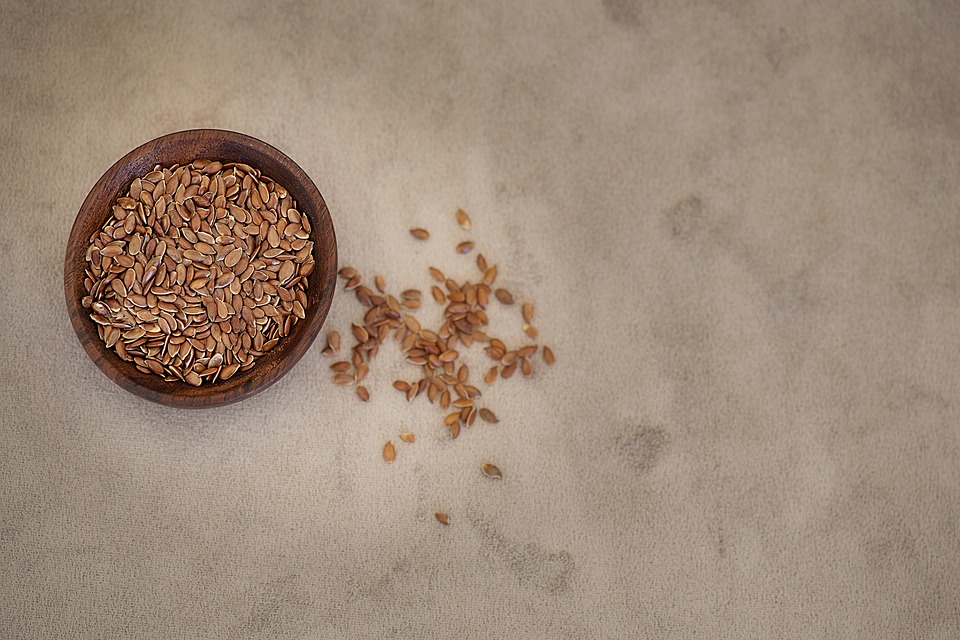Being a picky eater myself, I wanted to make sure my baby would not follow in my footsteps and be fussy with food. So once he was six months old and could start on solids I introduced him to a variety of vegetables, fruits and protein-rich foods.
Babies have a small stomach and generally do not eat much, thus I believe it is important to feed them foods that are packed with nutrients. Superfoods meet this criteria they are natural, easily digestible, high in nutrients and antioxidants, and packed with health-giving properties.
This is my personal list of seven superfoods that regularly feature in my son’s daily menu.
1. Chia Seeds

High in Omega-3, magnesium, fibre, iron, potassium and protein, chia seeds certainly pack a punch despite their size. Higher in antioxidants than blueberries and with more calcium than whole milk, I recommend incorporating this superfood into your child’s diet pronto.
2. Flax Seeds
 Flax is a perennial plant that grows mainly in cooler climates. A little goes a long way as the health benefits of flax seeds for babies include a healthy supply of omega-3 fatty acid, plenty of calcium and phosphorus for strong bone development, iron that reduces the risk of anaemia and high levels of dietary fibre, acting as a natural laxative that can relieve constipation.
Flax is a perennial plant that grows mainly in cooler climates. A little goes a long way as the health benefits of flax seeds for babies include a healthy supply of omega-3 fatty acid, plenty of calcium and phosphorus for strong bone development, iron that reduces the risk of anaemia and high levels of dietary fibre, acting as a natural laxative that can relieve constipation.
3. Quinoa

Quinoa is a gluten-free complete protein grain that is a perfect alternative to whole grain rice. High in lysine – an amino acid important for tissue growth and repair, quinoa is rich in fibre and nutrients such as magnesium. It is also high in iron content.
4. Kale

Kale is a rough, leafy vegetable that has gained great momentum in the health food community in the last few years, and with good reason. High in essential nutrients, fibre, calcium and protein, yet low in calories and fat, it is the perfect first solid food to introduce to your baby.
5. Sweet Potatoes

You may be surprised to see potatoes on the list, but sweet potatoes are a good source of potassium, vitamin C, and fibre and an excellent source of beta-carotene. Most babies also tend to prefer it over other vegetables because of its naturally sweet taste. When cooked and mashed into a smooth puree, it will help your baby make a seamless transition into solids.
6. Avocados

It has the highest protein content among the fruits and is rich in monounsaturated fat – ‘good’ fat that helps prevent heart disease. However, because they are high in fat, avocados can quickly fill up your baby, so go easy on the serving size in the beginning.
7. Yoghurt

Everyone loves a sweet treat, and yoghurt is the perfect substitute to ice cream. It is one of my favourite snacks but I only introduced it to my son after he turned one to prevent any complications.
Yoghurt is full of calcium, protein and phosphorus, all which are important for strong, healthy bones and teeth. Yoghurt also has probiotics, a type of good bacteria that aids digestion and supports the immune system. Since babies need fat in their diets, choose whole-milk options over low-fat or fat-free varieties and add fruits to give it some added sweetness.
Click here to read about the top brainfoods you can give your children.



